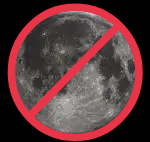It is illegal and immoral. It steals the rightful intellectual property of directors and developers who are only trying to make a living. If you want to be a thief so badly, then rob a federal bank.
And I agree. However, when youtube decides to make you watch an ad every 2 minutes, you stop caring
Piracy does not steal from the directors and creators, but from the distributors whose have already bought the rights. The distributors who attempt to create artificial scarcity, excessively monetize your attention, and in generally act hostile to their consumers. There used to be a pact between distributors extracting money from consumers while leaving the content in a desirable state, but greed ruined that. I don’t mind some ads, but we’re way beyond reasonable. I don’t mind phased rollouts, but actively preventing people from watching just because of their location? I don’t mind things not being shown, but the whole concept of stoking FoMO “before it goes into the vault for next generation”, is just wrong. I don’t mind attempts to copy protect, but paying your politicians to turn a civil matter into criminal and use govt resources to protect your artificial scarcity is just so wrong.
I prefer not to pirate. I used to think policy was wrong when there was some balance between distributors and consumers. However greed ruined that. Greed made distributors take and take. It is not wrong to steal from such corrupt unethical businesses. They’re not worthy of respect
The difference being that money is finite and digital media isn’t.
First, piracy is not illegal everywhere, and a personal copy is the most legal way in almost every country to archive what you have bought.
As for the morality of it, it’s your problem, not mine.
And the most important question is: What can I do when whole countries do not sell their music or TV shows? I’m thinking of Poland or Japan for example. I cannot legally buy media from those countries because they don’t care about foreign customers. How can they lose money if they don’t sell anything?
If you want a concrete example that happened to me yesterday: I want to buy a subscription to https://pilot.wp.pl/tv/. I want to give my money yet they refuse it. What can I do?
If the money actually went to the people that made the content then there would be an argument, but it doesn’t, it goes to a bunch of assholes who conned the actual content creators from their hard work.
Theft has a very strict legal definition. Piracy is not legally theft. It is legally infringement, a separate crime. Conflating one with the other is propaganda by the largest IP holders.
These largest IP holders want nothing more than to lock up all culture and rent it back to you for a price, indefinitely. They would happily steal from you without a moment’s hesitation. In fact, they have stolen from you. They’ve successfully extended copyright terms to an absurd length, preventing works from entering the public domain for decades.
Many of these IP holders also don’t care about preservation. They’ll happily let their works be lost to history. Some are actively fighting against preservation.
Is it immoral to infringe? Yes. But IP holders don’t have the moral highground. They’re just as bad, if not worse. (I’m talking about the multi billion dollar companies here, not the small business persons struggling to get by)
I’m a big fan of paying the people who make things for me.
But digital piracy is the only thing keeping archive copies of obscure media around today. Even libraries aren’t keeping up. Plenty of media creators have revived their thing that found an audience after decades forgotten - through piracy, and only successfully revived it thanks to archivist pirates, since they had thrown that thing away.
It’s not black and white.
Patronage funding, early access, streamlined delivery, and white glove support are the funding models that are working for creatives today.
I can’t get most of the content legally. What is my option?
When my friend wanted to watch “Breaking bad” a few years ago, he subscribed to a streaming service, it had only the second and third season. He paid for it, but piracy is the only option for him.
Even if you are in the USA, 87% of video games before 2010 are currently impossible to buy.Against indie devs yes, against Ubisoft and EA no.
Define a “living”. then tell me who isnt making it. Piracy is self moderating, the content that is being pirated the most involves directors and developers that made the most money, even with the piracy. As you go smaller in scale to creators that are more likely struggling to make a living, are also the least likely to be pirated. Every artist Ive known, digital arts, music, tubers and streamers, have hated copyright strike systems. The ones that are popular enough to have pirates also have comfortable income from fans. There is no one being prevented from “making a living” by piracy.
Is it wrong to take food from a grocery store that would otherwise be thrown away? The grocery store isn’t losing anything except potential future revenue.
Have an upvote!
You are wrong of course and “intellectual property” is a bullshit concept. Owning information is what is immoral. It’s also not stealing as you’re making a copy and not taking anything away.
I’d rather spend another $1000 on harddrives than give a single cent to streaming services or filmstudios.
Shop local, steal from corporate.
No you shouldn’t steal from small or independent creators. However don’t try to tell me that Disney is going to go out of business because I pirated their latest movie.
Are people downvoting because this is actually a popular opinion and doesn’t belong here or because they disagree with it?
OP appears to be a genuinely awful person in every possible metric, so I frankly just don’t want to give them the dopamine hit.
People pirate for different reasons, and the legal definition of it changes nothing really. There’s…
- People who will absolutely not ever pay for anything
- People who will pay as long as they get their money’s worth, who may also be open to supporting the creator directly (Patreon, Nebula, Bandcamp, Floatplane, Liberapay etc.)
- Preserving content in a usable format (e.g. vinyl record plastic breaking down, old 8track players becoming uneconomical to repair and rare to find, playstation magazine CDs that will never be available online despite being susceptible to CD rot)
I’m in the last two camps personally. I wanted to also share my opinions on the points you mentioned directly…
It is illegal and immoral
I think It is illegal and immoral to sell consumers a license to use a product, under the guise of them owning it without explicitly and clearly stating such at the point of purchase, i.e. consumer electronics where you may “own” the device but only have a license to use the operating system, digital game purchases on consoles which can be revoked at any time by Sony/Microsoft or the publisher, services like Amazon Prime Video where a digital box set you purchased (that can only be watched via Amazon’s website) can be deleted by Amazon at any time, leaving you no recourse.
It steals the rightful intellectual property of directors
In my opinion, it should not be right for directors at the likes of UMG to profit from music made by artists who have died.
and developers who are only trying to make a living
The developers do not make anywhere near as much money as they should for their efforts, and quite frankly they are going to get paid regardless of whether you as an individual decide to purchase or pass on a product.
If you want to be a thief so badly, then rob a federal bank.
IMO the people in the first camp probably aren’t interested in money if they have chosen not to purchase their media to begin with
I’m curious as to the reason behind the post though, has someone pirated your content before?
People who will pay as long as they get their money’s worth, who may also be open to supporting the creator directly
The point is, isn’t the producer right to make the price? You can always not consume what they produce. This category is the most obnoxious; would you ever go to a restaurant and expect to decide the prices?
It’s the very same argument for producers that willingly release their contently freely and let you support them, eventually. It’s their choice.
Of the three you quoted preservation is the only one I find acceptable. If the producer no longer care to distribute their product, then they probably don’t care to what it happens to it either.
I think It is illegal and immoral to sell consumers a license to use a product, under the guise of them owning it
For me the main difference is that nobody is forcing you to accept the transaction. I could accept this kind of argument for drugs for example, where you either take it or die/have serious repercussions. But pirating a movie you would have very much lived without just because is easy to do so it’s particularly problematic.
they are going to get paid regardless of whether you as an individual decide to purchase or pass on a product
Except they aren’t. Or at least, of course they’re payed the same, at the moment. But in our economy prices are signals. If a market will appear smaller then it is because of piracy then after some timesfewer developers will be hired, and each of them will be payed less because you’re “falsifying” the signals. Or even worst, the producers will start to use alternative form of monetization. That’s one of the reason the modern web is based off ads or free-to-play games with microtransanctions are so damn common.
IMO the people in the first camp probably aren’t interested in money if they have chosen not to purchase their media to begin with
The people in the first category should also think about the allocation problem. Those products which they like to consume but not pay for, still had a cost of production. The problem is they want ti consume, without supporting production, and that’s not gonna work for a society.









